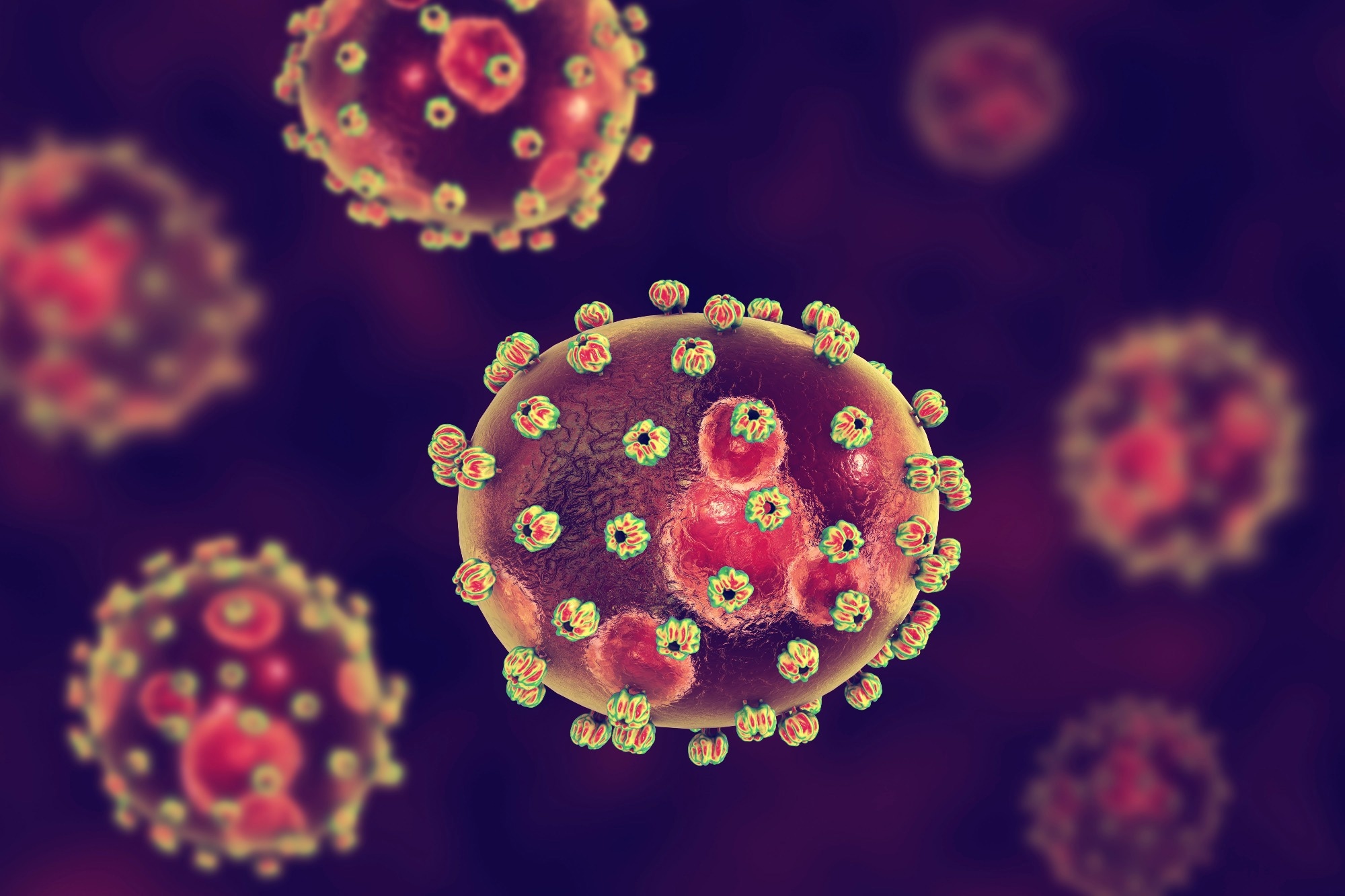Scientists have developed a novel Lassa vaccine using a recombinant measles virus and tested its protective efficacy against Lassa fever. A single vaccine dose has been found to induce a rapid and robust immune response in monkeys with pre-existing immunity against the measles virus.
The study is published in the journal Nature Communications.
 Study: Rapid protection induced by a single-shot Lassa vaccine in male cynomolgus monkeys. Image Credit: Kateryna Kon / Shutterstock
Study: Rapid protection induced by a single-shot Lassa vaccine in male cynomolgus monkeys. Image Credit: Kateryna Kon / Shutterstock
Background
Lassa fever caused by the Lassa virus is a significant public health crisis in West Africa. The disease is often diagnosed at advanced stages because of non-specific symptoms, including fever, fatigue, and headache. The case fatality rate of the disease is 15-30% in hospitalized patients.
The natural habitat of the Lassa virus is rodents of the Mastomys genera. The animal to human transmission occurs upon exposure to rodent-contaminated dust and infectious fluids. Although supportive care and symptomatic treatment appear to improve survival in Lassa virus-infected patients, no effective vaccines are currently available against this deadly disease.
In the current study, scientists have tested the immunogenicity and protective efficacy of the recombinant measles virus-based Lassa vaccine in monkeys with pre-existing immunity against the measles virus.
The vaccine was initially developed using a recombinant measles virus expressing the glycoprotein of the Lassa virus and nucleoprotein of the Josiah strain of the Lassa virus. Afterward, the vaccine was further engineered to improve immunogenicity.
Previous studies have shown that a single shot of this vaccine is highly effective in inducing a robust immune response and protecting against different strains of the Lassa virus in monkeys.
As mentioned by the scientists, the only concern about administering this vaccine in humans is that pre-existing anti-measles immunity in humans might reduce the vaccine efficacy. Given this concern, the scientists designed this study to further explore vaccine efficacy in monkeys with pre-existing anti-measles immunity.
Protective efficacy of measles virus-based Lassa vaccine
The experimental monkeys were intramuscularly immunized with a single shot of this vaccine 16 days or 8 days before exposure to the Lassa virus (Josiah strain). A separate set of monkeys was immunized with the vaccine one hour after the viral challenge.
The findings of clinical examinations revealed no clinical deterioration in vaccinated animals, whereas, non-vaccinated animals showed clinical symptoms including shivering, balance issue, and raised body temperature. One hour after the viral challenge, the animals vaccinated also exhibited clinical abnormalities, including nosebleeds.
Drug Discovery eBook

Regarding biochemical parameters, a significant increase in markers of severe Lassa fever and inflammation was observed in non-vaccinated and 1-hour post-vaccinated animals. In contrast, no significant alteration in blood parameters was observed in vaccinated animals.
The multiplex analysis of several soluble mediators of inflammation revealed that vaccinated animals are well protected against strong inflammatory responses characterized by increased pro-inflammatory cytokines, chemokines, and cytolytic proteins.
Furthermore, no trace of infectious virus was detected in the blood and other organs of vaccinated animals. In contrast, non-vaccinated and 1-hour post-vaccinated animals exhibited increased titers of infectious virus and viral RNA in the blood and other organs.
Immune response to measles virus-based Lassa vaccine
The analysis of immune response in animals post-viral challenge revealed that vaccinated animals are capable of inducing strong binding and neutralizing antibody responses against different proteins (glycoprotein and nucleoprotein) of the Lassa virus. These animals also exhibited a robust measles-specific antibody response after the challenge.
In contrast, non-vaccinated animals and 1-hour post-vaccinated animals showed detectable levels of anti-Lassa virus antibody response only at the end of the experiment. Regarding measles-specific antibody response, non-vaccinated animals showed detectable antibody levels throughout the study period. In addition, in 1-hour post-vaccinated animals, a gradual increase in measles-specific antibody response was observed over time.
Regarding cellular immune response, A robust induction in the numbers of circulating CD8+ T cells was observed in vaccinated animals. This cytotoxic T-cell response was more prominent in animals that were challenged with the virus 8 days post-immunization. Activation of CD4+ T cell response was also observed in vaccinated animals. These observations were further justified by the transcriptomic profiles measured in peripheral blood mononuclear cells. Overall, the observations indicate that CD8+ T cells are vital for the control of Lassa virus infection.
Study significance
The study describes that a single shot of the measles virus-based Lassa vaccine can provide robust protection against Lassa fever in monkeys with pre-existing anti-measles immunity. However, the vaccine needs a short-term window of 8 or 16 days to be able to induce strong humoral and cellular immune responses against the Lassa virus.
Monkeys immunized 8 days before the viral challenge exhibit a more robust immune response than those immunized 16 days before the viral challenge. This highlights the possibility of a shorter time frame between vaccination and viral challenge. However, the vaccine does not seem to have any therapeutic benefits as immunization after viral challenge fails to induce an immune response.
- Mateo, Mathieu, Stéphanie Reynard, Natalia Pietrosemoli, Emeline Perthame, Alexandra Journeaux, Kodie Noy, Clara Germain, et al. 2023. “Rapid Protection Induced by a Single-Shot Lassa Vaccine in Male Cynomolgus Monkeys.” Nature Communications 14 (1): 1352. https://doi.org/10.1038/s41467-023-37050-6, https://www.nature.com/articles/s41467-023-37050-6
Posted in: Medical Research News | Disease/Infection News | Pharmaceutical News
Tags: Animal Model, Antibody, Blood, CD4, Cell, Chemokines, Cytokines, Efficacy, Fatigue, Fever, Glycoprotein, Headache, Immune Response, immunity, Immunization, Inflammation, Lassa Virus, Measles, Public Health, RNA, T-Cell, Vaccine, Virus

Written by
Dr. Sanchari Sinha Dutta
Dr. Sanchari Sinha Dutta is a science communicator who believes in spreading the power of science in every corner of the world. She has a Bachelor of Science (B.Sc.) degree and a Master's of Science (M.Sc.) in biology and human physiology. Following her Master's degree, Sanchari went on to study a Ph.D. in human physiology. She has authored more than 10 original research articles, all of which have been published in world renowned international journals.
Source: Read Full Article
